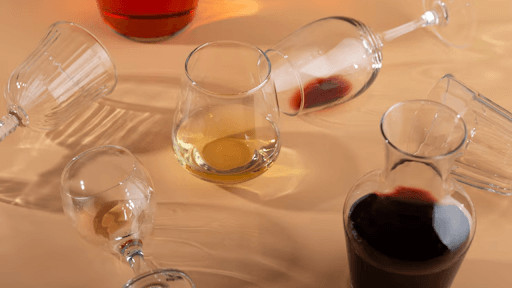views

The alcohol beverage industry is more competitive than ever, with consumers constantly seeking new and exciting options. Whether you’re launching a line of craft beers, hard seltzers, or artisanal spirits, having the right expertise can make or break your success. This is where alcoholic beverage formulation comes into play.
Skilled developers bring not only technical know-how but also creativity and market insight to help your products stand out. Let’s explore why partnering with a skilled developer—or even a beverage formulation consultant —is essential for elevating your alcohol beverage line.
The Role of Expertise in Beverage Development
Creating an alcoholic drink isn’t as simple as mixing ingredients and bottling the result. It requires a deep understanding of chemistry, consumer preferences, and production processes. A skilled developer ensures that every aspect of your beverage—from flavor profile to packaging—is carefully thought out and executed.
Without this expertise, it’s easy to end up with a product that falls flat on shelves or fails to meet safety standards.
Benefit 1: Crafting Unique Flavor Profiles
One of the biggest challenges in the alcohol industry is standing out in a crowded market. A skilled developer helps you create unique flavor combinations that capture attention and keep customers coming back.
How they achieve this:
- Experiment with natural extracts, botanicals, and fruits to develop signature tastes.
- Use sensory testing to refine flavors based on real-world feedback.
- Balance sweetness, acidity, and bitterness for a well-rounded experience.
For example, hard seltzers often rely on a neutral alcohol base paired with refreshing fruit flavors. A developer can tweak these elements to make your seltzer distinct from competitors.
Benefit 2: Ensuring Consistency Across Batches
Consistency is key to building trust with consumers. No one wants to buy a drink they loved last month only to find it tastes completely different now. Developers use precise formulations and standardized processes to ensure every batch meets expectations.
Steps to maintain consistency:
- Create detailed recipes that leave no room for error.
- Test raw materials for quality before production begins.
- Monitor each stage of production to catch issues early.
This attention to detail keeps your brand reliable and reputable.
Benefit 3: Meeting Health-Conscious Demands
Modern drinkers are increasingly health-conscious, looking for lighter, cleaner options without sacrificing taste. Developers understand how to cater to these preferences while keeping drinks flavorful and appealing.
Popular strategies include:
- Using gluten-free alcohol bases like cane sugar for inclusivity.
- Ensure clarity in labeling regarding calorie counts and ingredients.
- Incorporating functional ingredients such as vitamins or adaptogens.
These adjustments tap into the growing demand for healthier beverage choices.
Benefit 4: Optimizing Production Efficiency
Efficiency matters, especially when scaling up production. A skilled developer knows how to streamline processes to save time and money without compromising quality.
Ways they improve efficiency:
- Suggest cost-effective sourcing for raw materials.
- Design workflows that reduce waste and energy usage.
- Troubleshoot equipment or process issues during manufacturing.
These optimizations lower costs and increase profitability.
Benefit 5: Navigating Regulatory Compliance
Alcohol production is heavily regulated, with rules varying by region. A developer familiar with these regulations ensures your products meet all legal requirements, avoiding costly fines or recalls.
Key areas of focus:
- Labeling accuracy, including alcohol content and allergen information.
- Adherence to food safety standards during production.
- Proper documentation for licensing and permits.
Compliance gives you peace of mind and protects your brand.
Benefit 6: Innovating with Trends
Trends drive the alcohol industry, and staying ahead means constant innovation. Developers keep their finger on the pulse of what’s hot, helping you capitalize on emerging opportunities.
Examples of recent trends:
- Hard seltzers with exotic fruit flavors or zero-sugar options.
- Low-alcohol beverages for mindful drinking occasions.
- Infused spirits with herbs or spices for added complexity.
Incorporating these trends keeps your lineup fresh and relevant.
Benefit 7: Enhancing Packaging and Presentation
Packaging plays a huge role in attracting buyers. A developer works closely with designers to ensure your product looks as good as it tastes.
Tips for standout packaging:
- Choose eco-friendly materials to appeal to sustainability-minded consumers.
- Highlight unique selling points prominently on labels.
- Ensure bottles or cans are practical yet visually striking.
Great packaging makes your product pop on crowded shelves.
Benefit 8: Testing and Refining Products
No product should hit the market without thorough testing. Developers oversee trials to gather feedback and refine formulas before launch.
Testing involves:
- Conducting taste tests with diverse groups of potential customers.
- Analyzing shelf life and stability under various conditions.
- Making iterative improvements based on results.
This step minimizes risks and maximizes chances of success.
Bottom Line
Having skilled developers on your side is a game-changer in an industry driven by innovation and consumer demands. From crafting unique flavors to ensuring compliance and optimizing production, their contributions are invaluable. If you want your alcoholic beverage line to thrive, investing in expert alcoholic beverage formulation is a smart move. By partnering with professionals who understand both science and market dynamics, you position yourself for growth and recognition. So don’t hesitate—bring in the experts and watch your beverage dreams come to life.



Comments
0 comment